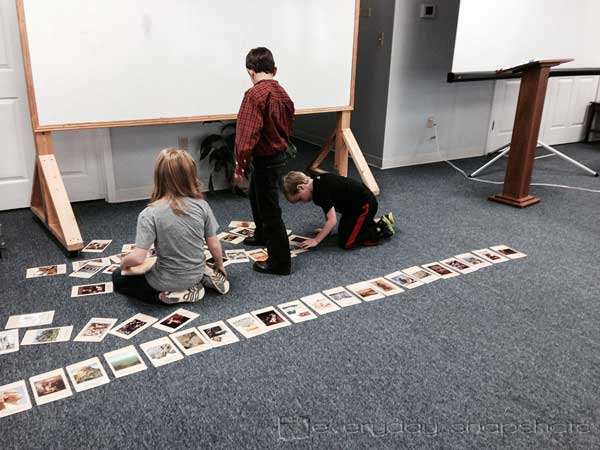
Memory work is a big part of what we do around here. And while for some people, memory work would suggest feelings of drudgery and drill and kill, the reality couldn’t be farther from that. We love our memory work and have fun with it.
The kids get great satisfaction in learning a new poem or a series of math facts. These “hooks” become saved in their brain to be excitedly called forth during the liturgy at church, at a science museum or demonstration, or during story time at the library.
We memorize because of those feelings of satisfaction and to create those hooks of information.
Memorization aids in higher level thinking, because it frees the working portion of your brain from having to remember basic facts and allows it to focus on more advanced skills.
A good example of this is in foreign language. The student who is able to recall the basic vocabulary, will have a far easier time tackling the grammar and nuances of a translation.
A storehouse of knowledge from memory work provides instant context so vital for success in reading comprehension. If the mention of Finland automatically calls to mind a far-north European country close to the Arctic circle, the student already has context stored that may mean the difference in understanding what is being read and only comprehending a portion of the story.
Listen or read more of this post
Finally memory work establishes patterns with language, exposure to extensive vocabulary, and an intimate interaction with scripture, poetry, and the great ideas. When the mind and heart are filled with these, then these are what form the soul. It leaves little room for the less-than-worthy to creep in.
Memory work is introduced each week at our classical coop. As the memory work teacher, I use recitation, songs, motions, pictures, and even puzzles to introduce the new material to the kids. The methods I use give the parents and kids fun tools they can then use at home to be successful in memorizing the material.
Some of these methods I learned while we participated in another classical co-op, some methods are common sense, and other methods I found while researching online and in books.
Because different kids have different strengths, I like to use a variety of modalities in introducing the memory work. While all of the memory work is auditory in some way, sometimes we take that further with songs or funny voices.
Kids who are stronger visually get a boost from pictures and the visuals we provide.
Finally, kinesthetic kids enjoy when we add hand motions or simply dance to the music.
Over the next four posts in this series I am going to unpack the following methods for you and show you exactly how you can use them to help your kids memorize anything.
- Which Homeschool Schedule Actually Works for You? - June 3, 2025
- How to Keep Homeschool Consistent When Life Isn’t - May 20, 2025
- Six Smart Questions to Ask Before You Buy Curriculum - May 6, 2025
